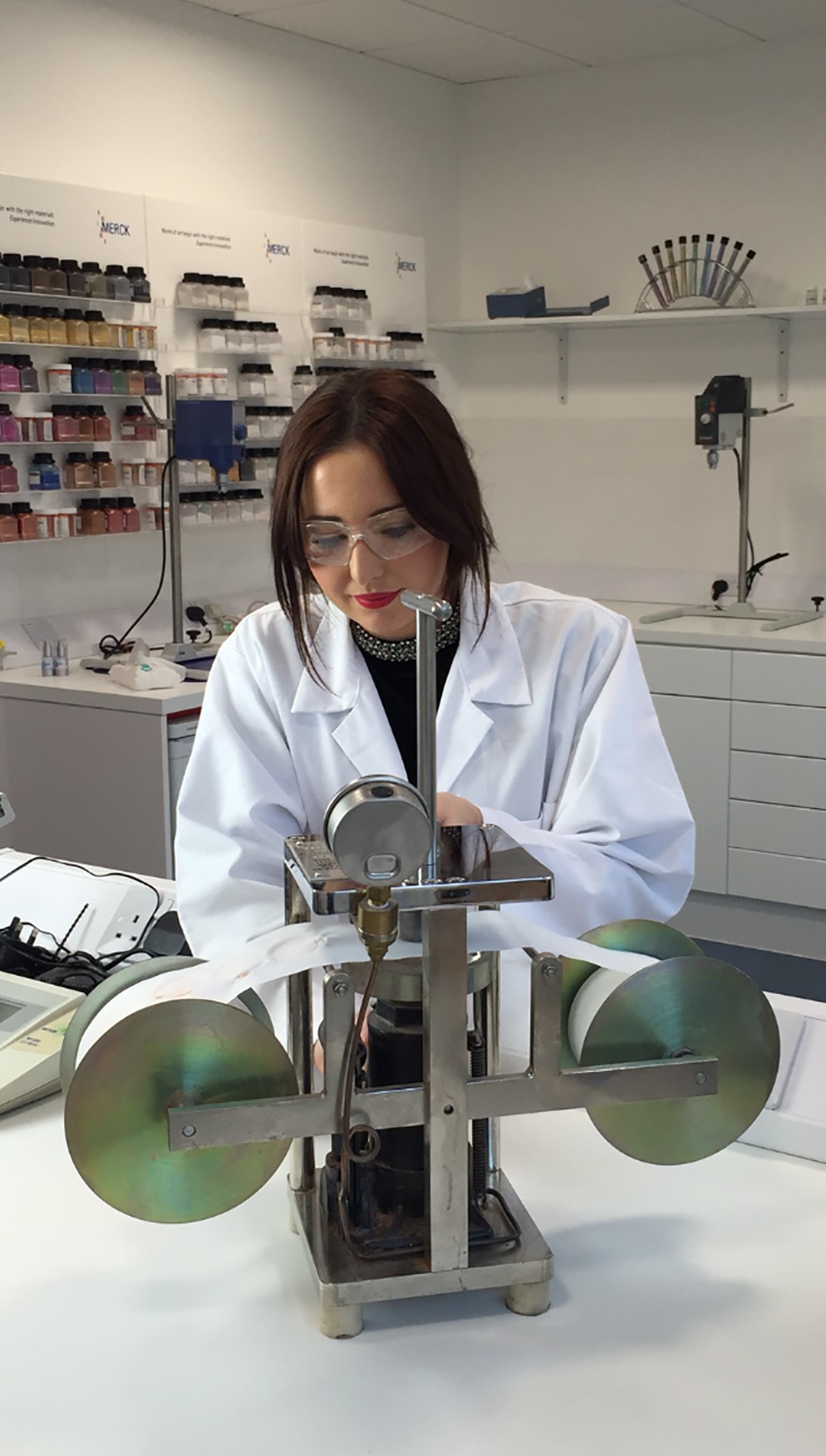Six London College of Fashion MSc Cosmetic Science students recently received awards at the annual Cosmetic Toiletries and Perfumery Association (CPTA) ceremony which celebrates future cosmetic scientists.
LCF News caught up with final year student Rachael Polowyj who won an award for best placement year. Rachael discussed her experience, what she did during her year out, and what winning the award means to her.
What did you study before MSc Cosmetic Science and where?
I studied Fashion & Textiles, Chemistry, Biology and Applied Science (A-Level) at John Leggott College which is located in my hometown of Scunthorpe.
What made you want to study MSc Cosmetic Science?
I’ve always been good at science – it’s something that interests me. However, I am such a loud, outgoing girly-girl and love fashion so I really couldn’t see myself in a boring science role surrounded with the likes of Sheldon from the Big Bang Theory. I saw this course advertised online and knew it was perfect for me and my personality.
What’s the position of science in fashion?
People always ask me this! “Why are you studying Cosmetic Science at a fashion university?” I’ll answer that by asking you a question – have you ever scrolled through a fashion magazine and noticed the beauty section? Have you ever looked closely at a catwalk and noticed the make-up on the models, the colours and patterns? Cosmetic products follow the same trends as the fashion industry. We scientists also look at the same catwalks, trend forecasts and other means to try and create the perfect shades of colour for the correct season, the right texture too or go a completely different direction and invent something new, wild and inspirational, just like a fashion designer!

MSc Cosmetic Science student Rachael Polowyj creating products during her placement year.
MSc Cosmetic Science are encouraged to take placement years, where did you take yours, and what was your role there?
I took my placement year at a chemical distributor called Azelis which was based one hour north of London (Hertford). That itself doesn’t sound very glamorous, but in fact it was amazing! In a nutshell, the company sells cosmetic ingredients to near enough every cosmetic/beauty/personal care company in the world, from mass market to prestige. My role was a research and development chemist, so I had to make new cosmetic products in a laboratory. The reason for me making these products was to show our customers what our ingredients could do.
What did you learn during your placement?
I learnt how to make so many different products from anti-ageing creams, shampoos and conditioners to mascaras, lipsticks and nail varnishes. Another thing that I learnt was the importance of networking, professionalism and punctuality.
What was a daily schedule at your placement like?
I would start the day at 8:30am and would use the first half hour to plan out my day. I would go through my briefs and establish which were more important or what would take me longest to do and work around this. I would spend 80% of my time in the lab making products and the other 20% would consist of internal meetings and customer visits. I had to be careful not to start making a complicated product too late as I had to leave the lab at 5pm.
You won the CPTA Awards for your presentations of placement year, congratulations. How does it feel and will you use the bursary for anything specific?
In my new role at Azelis, I don’t spend any time making products and I want to keep up my formulating skills, so I am using my bursary to purchase raw materials and I have started making my own bath bombs at home.

MSc Cosmetic Science student Rachael Polowyj worked at Azelis for her placement year.
What three bits of advice would you give to any prospective students thinking of studying MSc Cosmetic Science?
• The placement year is optional, but I would strongly recommend to take part as the UK cosmetic industry is quite a small one and most people know each other, so taking a placement with a reputable company is a great way to get your name out there.
• Attend all Society of Cosmetic Scientists (SCS) talks. These again are optional but the SCS have so many strong connections in the industry it’s a great way of getting free advice and finding some inspiration as to what field you want to specialise in.
• Go over your lectures as soon as you’ve finished a lesson. Sometimes there is so much information packed into one lecture it’s easy to lose focus, so I try and re-read my lecture notes whilst it’s still fresh in my head which helps me remember key facts.
Where would you like to work after graduating?
I was lucky enough to secure a job at Azelis, so I am planning on staying there for now, but eventually I would like to work on my own projects and start my own range.
What do you think the cosmetic science industry will look like in five years?
This course is becoming more and more popular as other universities are planning on adding it to their curriculum, so I think because of the influx of cosmetic scientists into the industry, there will be so many new ideas and new technologies brought forward. The industry is only set to rise and I can’t wait to be a part of it.


